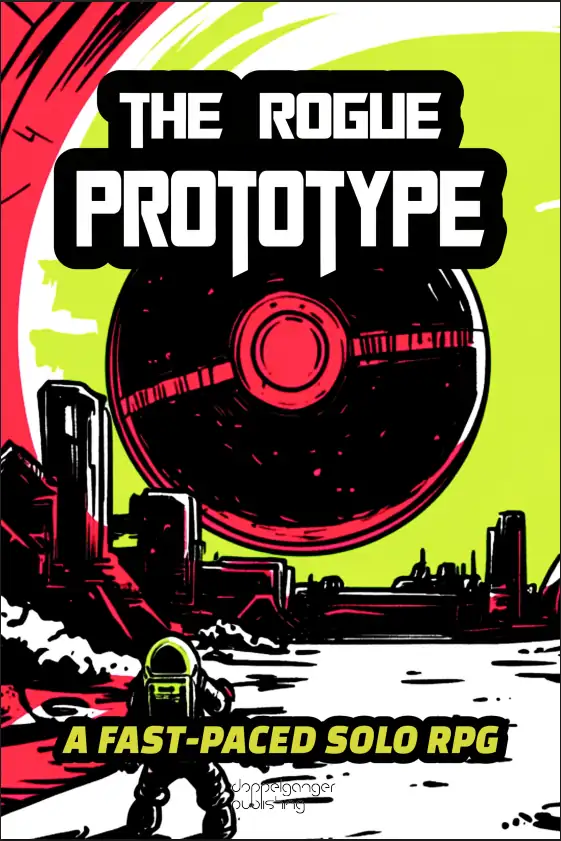Hello everyone!
Today I'd like to present a narrative tool that I developed for my new
game The Rogue Prototype: the Adventure Framework. When designing this solo roleplaying game, I wanted to create a simple method that effectively structures an adventure idea without limiting the player's creativity.
The idea came to me after noticing that many solo players (myself included) often had interesting concepts but struggled to transform them into playable adventures. The Adventure Framework isn't a miracle solution, but rather a compass that helps navigate your own narrative.
A Simple Formula for Rich Adventures
The heart of the Adventure Framework rests on a surprisingly simple formula:
To achieve my [OBJECTIVE], I must do [ACTION] in [LOCATION] with [SOMEONE/SOMETHING]... BUT...
The magic happens in that final "BUT." It's what transforms an ordinary task into a memorable adventure. Let's take a concrete example:
To relax tonight, I must buy beer at the supermarket with my money.
So far, nothing very exciting. It's a simple errand, not really adventure material. Now, let's add our "BUT" element:
BUT the only store still open is in a neighborhood controlled by a gang that's looking for me because of an old debt.
Suddenly, a mundane trip to the supermarket becomes a perilous mission that might involve detours, stealth, or even a confrontation. That's how an everyday task can transform into a real adventure.
Two Types of Obstacles
In the Adventure Framework, I've identified two distinct types of obstacles: narrative blocks and complications. Understanding their difference is essential for effectively structuring your adventure.
Narrative Blocks
A narrative block is a fundamental obstacle that completely prevents achieving the objective without first solving an auxiliary problem. It's like an insurmountable wall that requires a complete detour.
For example:
- The dungeon door is sealed by ancient magic requiring a specific artifact
- The scientist capable of calibrating your superlaser is imprisoned on a distant planet
- The crucial information is encoded in a language no one understands
When facing a narrative block, you must create a sub-objective using the same basic formula.
Complications
A complication, on the other hand, is an obstacle you can overcome directly while continuing your progression. It makes the path more difficult or more dangerous, but doesn't require fundamentally changing your trajectory.
For example:
- Goblins prowl around the dungeon
- A federal patrol monitors the landing zone
- Your contact demands a higher price than expected
In The Rogue Prototype, this distinction makes perfect sense: improving the stolen Stellar Annihilator often requires overcoming narrative blocks while managing various complications.
 |
| Check the book on drivethrurpg |
To identify whether you're facing a narrative block or a complication, I generally ask this question: "Can I continue directly toward my objective by overcoming this obstacle, or must I first accomplish something completely different?" If it's the latter, it's a narrative block.
I hope this simple structure will be useful for your own solo adventures. In a future article, I'll delve deeper into managing blocks that reveal themselves progressively and the importance of narrative twists for maintaining player engagement.



No comments:
Post a Comment